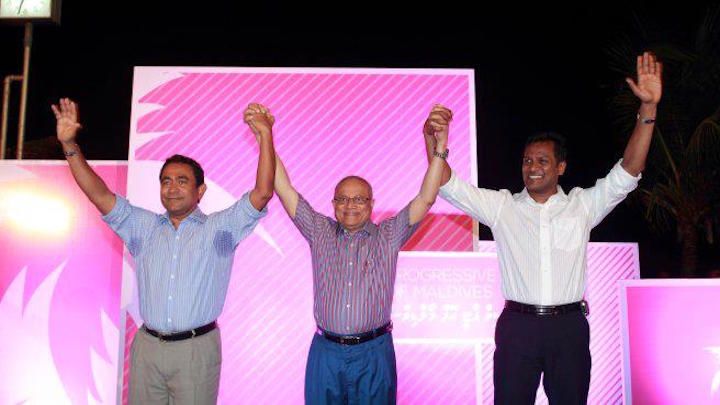A conversation with Umar Naseer
Ex Home Minister Umar Naseer speaks candidly about his resignation from the cabinet, the changing political landscape, and the high-profile murder of Dr Afrasheem Ali.

03 Aug 2016, 09:00
In an interview with the Maldives Independent’s Omkar Khandekar in early July, former Home Minister Umar Naseer spoke candidly about his resignation from the cabinet, the changing political landscape, and the high-profile murder of Dr Afrasheem Ali.
Days after his surprise resignation, Naseer announced his intention to challenge the incumbent president for the ruling party’s presidential ticket. On July 4, he met with “kingmaker” Gasim Ibrahim to seek the Jumhooree Party leader’s endorsement.
Asked by reporters after the meeting whether former President Maumoon Abdul Gayoom will back him over President Abdulla Yameen in the wake of a public rift between the brothers, Naseer refused to comment directly but added: “I will just say that my opponent won’t have the ace of spades now.”
Omkar Khandekar: Congratulations on your bid for the presidency. Could you tell me about the journey that led you to it?
Become a member
Get full access to our archive and personalise your experience.
Already a member?
Discussion
No comments yet. Be the first to share your thoughts!
No comments yet. Be the first to join the conversation!
Join the Conversation
Sign in to share your thoughts under an alias and take part in the discussion. Independent journalism thrives on open, respectful debate — your voice matters.




